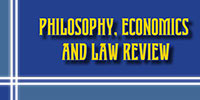Vesselin PETROV
DSc. in Philosophy, Professor (Institute of Philosophy and Sociology at the Bulgarian Academy of Sciences), Bulgaria
Petrov.vesselin@gmail.com
UDC 101
DOI : 10.31733/2786-491X-2022-1-48-54
Keywords: Applied Philosophy, Applied Ontology, Applied Metaphysics
Abstract. The article is devoted to topical issues of the emergence of applied philosophy and its role in society. The important role of knowledge in modern society is emphasized. The concepts of pure and applied science, as well as applied philosophy are discussed. It is noted that applied knowledge can be considered as a philosophical knowledge of the third order, which inevitably leads to complete "truth", which is applicable always and everywhere.
The development of applied philosophy and its connection with applied ethics is considered, because applied philosophy developed primarily in such areas as ethics, as the concept of applied ethics was approved more than fifty years ago. The modern examples of the development of applied philosophy are discussed, in particular: the Center for Applied Philosophy in Australia, the Society of Applied Philosophy in Great Britain, the Journal of Applied Philosophy published since 1984.
The thesis is that in the modern world any knowledge is somehow applied philosophy. It is noted that even in the most abstract field of philosophy – ontology and metaphysics – the applied approach has become widely accepted, so we can talk about applied ontology and applied metaphysics. The ideas of applied philosophy and more specifically applied ontology and applied metaphysics have developed widely only in the last few decades, but they have deeper and more ancient roots. Also in the last two decades, applied epistemology has begun to develop and spread.
It is noted that in a modern society based on knowledge, it is time to realize not only the possibility but also the real functioning of philosophy as an applied philosophy. The right approach is collaboration and interaction of philosophers with scientists, who are experts in specific sciences, because this is the only way to ensure that philosophical knowledge would not be misinterpreted or misused, but will find its place in modern research and development for the benefit of society as a whole.
References
Battersby, Mark E. (1989). Critical Thinking as Applied Epistemology: Relocating Critical Thinking in the Philosophical Landscape. – in: Informal Logic, 11, pp. 91-100.
Dolhenty, J. What Do We Mean By “Applied Philosophy”? Http://www.radicalacademy.com /philapplied1.htm
Petrov, V (2004). General Topics and Dilemmas of Applied Ontologies. The Challenges facing Philosophy in United Europe. Sofia, pp. 376-383.
Pincock, Ch. (2009). Towards a Philosophy of Applied Mathematics.
Bueno, O., & Linnebo, Ø. (2009). New Waves in Philosophy of Mathematics. Palgrave Macmillan.
Whitehead, A. N. (1967). The Aims of Education. The Free Press. New York (first edition 1929 by The Macmillan Company).
Whitehead, A. N. (2005). Religion in the Making. Fordham University Press. New York. (first edition: New York: Macmillan, 1926).
